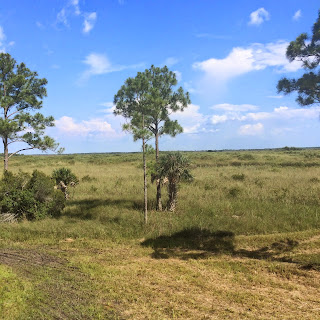 |
| Equality for all sentient beings. Photo from https://www.pinterest.com/pin/523191681683098058/ |
Principle one of the Earth Charter says to, "Respect Earth and life in all its diversity. Recognize that all beings are interdependent and every form of life has value regardless of its worth to human beings" (Earth Charter, para.7). This parallels what Shiva mentioned in Tomorrows Biodiversity, "All life forms have intrinsic worth and right to evolve freely on their own term" (40). This holds true in my opinion. Humans have taken the liberty to assume dominance over all other life forms. Clearly, we have proven that we cannot handle that responsibility. It is time that we go back to sharing this planet. We do not get to 'own' an animal and dictate what it wants to do. Animals should be allowed to live as nature intended with out human disruption.
 |
| A wild hog. Photo from http://nwdistrict.ifas.ufl.edu/hort/2014/03/18/preventing-invasive-plants-and-animals/ |
In Principle two of the Earth Charter, it says, "Control and eradicate non-native or genetically modified organisms harmful to native species and the environment, and prevent introduction of such harmful organisms" (Earth Charter, para.12). We have had many discussion in class about the harmful effects of non-native plants and animals. In particular I remember the discussion on the FGCU trail and at CREW. At FGCU the hogs used to be a bad problem in the trails to they had developed traps. Also, we found an invasive orchid species that we had to pull and kill. At CREW there was an area of land that non native species of plants were becoming so destructive that it had the potential to ruin the animal ecosystem as well. Watching Food Inc. we learned about GMOs and how common they have become. The worry is that we do not know how destructive they will be years down the line.
 |
| Protests for the Immokalee Coalition of Workers. Photo from http://remezcla.com/culture/may-day-five-latino-comrades/ |
Principle Three states, "ensure that all trade supports sustainable resource use, environmental protection, and progressive labor standards" (Earth Charter, para.16). Our last field trip involved driving out to Immokalee. There we met two workers part of the Immokalee Coalition of Workers and drove around their neighborhood. The standards these people have to live and work in are unacceptable. They are working hard in order to raise the standards somewhat. Even still more should be done. It is the least we can do to support only stores that support the penny increase in tomatoes. Hopefully, soon enough their labor standards will be better.
 |
| Zoo realities. Image from http://sfsubeca502animalsusedinentertainment.blogspot.com/2012/12/why-should-we-keep-zoos.html |
Principle Four lists, "treat all living beings with respect and consideration" (Earth Charter, para. 21). This brought me back to the first reading for this class. Orr writes in Love it or Lose it: The Coming Biophilia Revolutio, "We need animals, not locked up in zoos, but free on their own terms. We need them for what they can tell us about ourselves and about the world" (207). Animals deserve dignity, not being locked away and gawked at. The treatment of these animals in deplorable and unacceptable. The fact of the matter is that even in the 'best' zoos and animal agriculture facilities they are still being exploited. Even in organic and so-called 'free-range' farms the animals are being systematically tortured and murdered. They live no life as how they are supposed to. It is time we listen to the Earth Charter and start respecting the animals. Honestly, there is a very easy solution to ending a lot of the environmental problems in today's society. However, it is a solution that most are not willing to accept. We can continue to live in ignorance or we can turn the car around and start making a difference. You don't even need to get rid of your car...
















